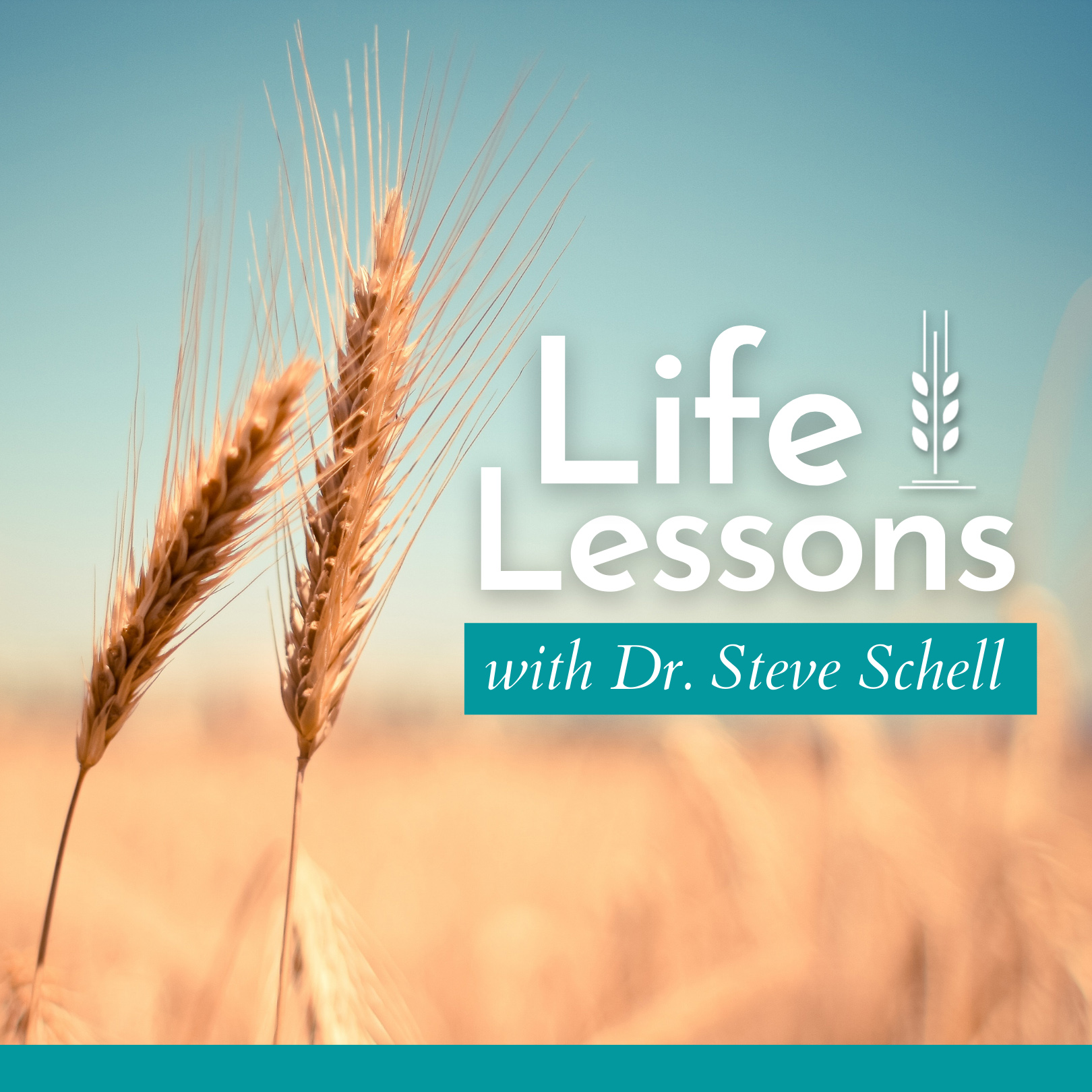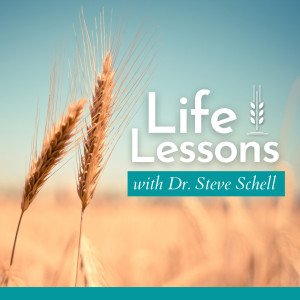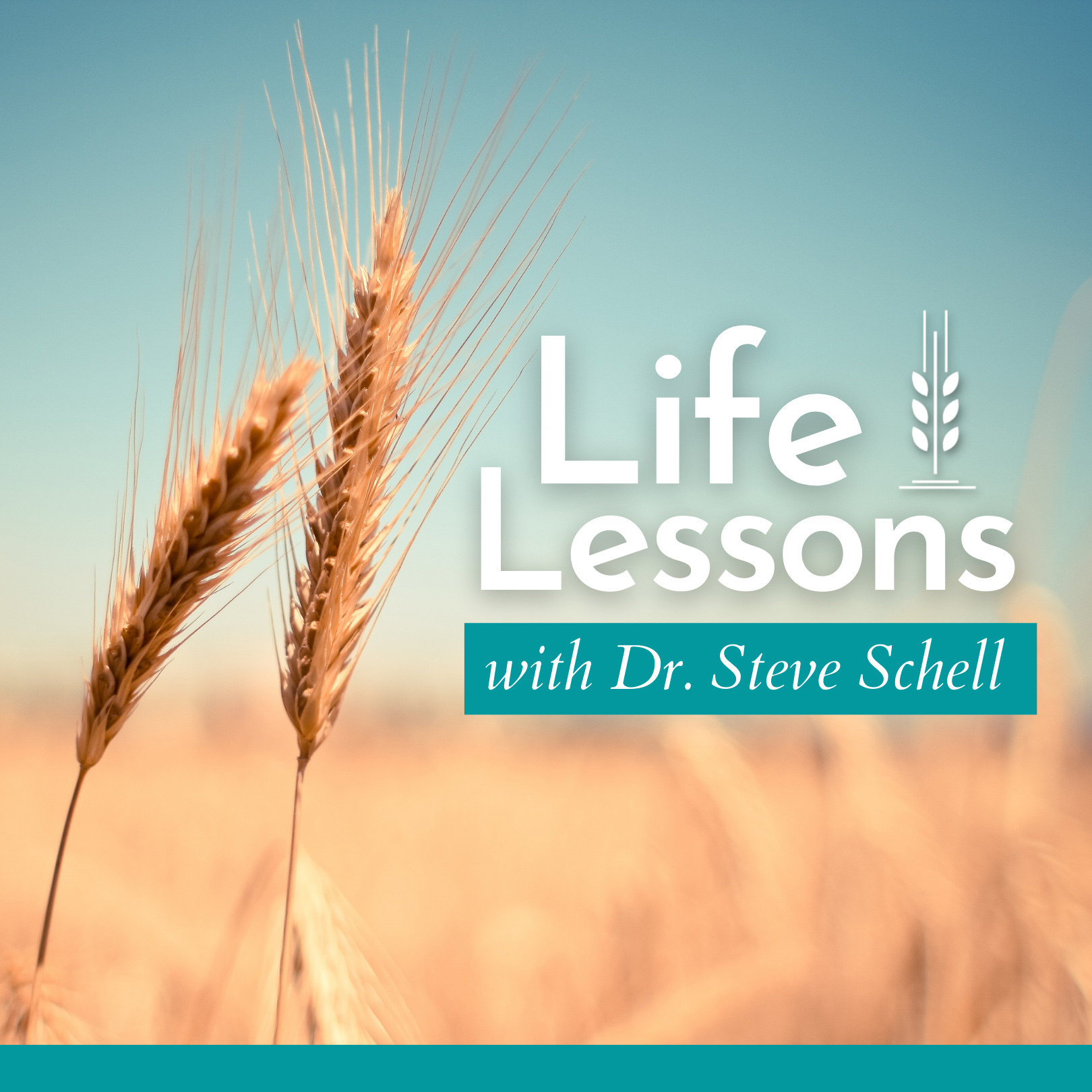
148.5K
Downloads
501
Episodes
Pastor Steve Schell comprehensively teaches through entire books of the Bible pulling out the deep, eternal truths in each section of Scripture without skipping over challenging passages. These sermons will help foster true discipleship for the committed Christian, both young and old.
Pastor Steve Schell comprehensively teaches through entire books of the Bible pulling out the deep, eternal truths in each section of Scripture without skipping over challenging passages. These sermons will help foster true discipleship for the committed Christian, both young and old.
Episodes

Monday Jun 09, 2025
Ep 01 Following God's Call Series: Understanding the Call
Monday Jun 09, 2025
Monday Jun 09, 2025
Our lives are meant to be lived with clear purpose and direction. God doesn't waste anything. He doesn't waste any part of your life. If you feel that you are somehow on hold and being wasted, you simply don't understand what He is doing. The reality is God has much for us to do.
There is a call, a purpose and a plan for your life. This episode focuses on understanding the call that is on our lives.

Thursday Jun 05, 2025
Ep 04 Maturing in Worship Pt 4, Gal 5:16–23; 2 Cor 4:7
Thursday Jun 05, 2025
Thursday Jun 05, 2025
In this episode, Pastor Steve goes into the practical aspects of worshipping God and gives some boundaries to worshipping in the Spirit so believers do not take the focus off the Lord.
To receive a free copy of Dr. Steve Schell's newest book Study Verse by Verse: Hebrews, email us at info@lifelessonspublishing.com and ask for your copy at no charge!
Also check out our website at lifelessonspublishing.com for additional resources for pastors and leaders. We have recorded classes and other materials offered at no charge.

Monday Jun 02, 2025
Ep 03 Maturing in Worship Pt 3, Gal 5:16-23; 2 Cor 4:7
Monday Jun 02, 2025
Monday Jun 02, 2025
A person who is maturing in worship has learned that they have a continual need to be transformed in the Lord's presence, no matter how old. When I am in the flesh, I will still be grumpy; I will still be the old me. God does not come and so change me that I become a really nice person with or without Him. Rather, a mature Christian becomes more and more dependent on the working of the Holy Spirit because I realize I can be filled with the Holy Spirit at one point but then slip back into my flesh at another. That is why I must learn to worship no matter how I feel.
This episode focuses more on the practical aspects of how we worship.
To receive a free copy of Dr. Steve Schell's newest book Study Verse by Verse: Hebrews, email us at info@lifelessonspublishing.com and ask for your copy at no charge!
Also check out our website at lifelessonspublishing.com for additional resources for pastors and leaders. We have recorded classes and other materials offered at no charge.

Thursday May 29, 2025
Ep 02 Maturing in Worship Pt 2, Gal 5:16-23; 2 Cor 4:7
Thursday May 29, 2025
Thursday May 29, 2025
We were created to worship and be in love with God. In this new four-part series, we look at how and why we worship. God actually looks for people who worship Him in Spirit and in truth. He goes after men and women who are worshippers. We must see the importance of worship in our life, and we each must become a true worshipper, growing in our understanding and commitment in worshipping God.
To receive a free copy of Dr. Steve Schell's newest book Study Verse by Verse: Hebrews, email us at info@lifelessonspublishing.com and ask for your copy at no charge!
Also check out our website at lifelessonspublishing.com for additional resources for pastors and leaders. We have recorded classes and other materials offered at no charge.

Monday May 26, 2025
Ep 01 Maturing in Worship, Gal 5:16-23; 2 Cor 4:7
Monday May 26, 2025
Monday May 26, 2025
We were created to worship and be in love with God. In this new four-part series, we look at how and why we worship. God actually looks for people who worship Him in Spirit and in truth. He goes after men and women who are worshippers. We must see the importance of worship in our life, and we each must become a true worshipper, growing in our understanding and commitment in worshipping God.
To receive a free copy of Dr. Steve Schell's newest book Study Verse by Verse: Hebrews, email us at info@lifelessonspublishing.com and ask for your copy at no charge!
Also check out our website at lifelessonspublishing.com for additional resources for pastors and leaders. We have recorded classes and other materials offered at no charge.

Thursday May 22, 2025
Ep 74 Mary's Treasure, Lk 2:1-20
Thursday May 22, 2025
Thursday May 22, 2025
Listeners, this episode is a out of chronological order in our study of Luke, but the message is so good we included it anyway!
People suffer hardship and rejection for different reasons. Sometimes we reap the bitter fruit of our own mistakes or rebellion. Sometimes we reap the bitter fruit of others' mistakes or rebellion. Yet, sometimes we suffer precisely because we are doing what God has asked us to do. Obedience to Him can bring hostility from people and oppression from the devil, and these can leave us feeling deeply discouraged. But if God's will has led us into hardship, then we can be sure He won't forsake us in the middle of it. In this passage for today, we see Mary giving birth to Jesus in a stable in Bethlehem, and it appears she's having to do this alone. Under these circumstances it's hard to imagine Mary wasn't discouraged as she had to wrap her own baby and put Him in a feeding trough for a crib. So, God did a wonderful miracle to encourage her. He found a group of godly shepherds still awake at that time of night and let them see the joy that heaven felt over the birth of her Son. In effect He sent the shepherds as prophets to encourage and comfort her in those dark moments. And we learn from this that God will also encourage us when His will has gotten us into trouble. He'll let us know He loves us and hasn't forgotten us, and His plan is right on track.
To receive a free copy of Dr. Steve Schell's newest book Study Verse by Verse: Hebrews, email us at info@lifelessonspublishing.com and ask for your copy at no charge!
Also check out our website at lifelessonspublishing.com for additional resources for pastors and leaders. We have recorded classes and other materials offered at no charge.

Monday May 19, 2025
Ep 73 Commissioning Disciples Lk 24:44-49
Monday May 19, 2025
Monday May 19, 2025
You might say this passage describes the first Sunday night service. It takes place on Sunday evening (the first day of Jesus' resurrection). The disciples were gathered for a meal (Mk 16:14) in a room with the door barred against intruders. Suddenly, Jesus appeared in their midst. They had been arguing about the validity of His resurrection, so the first thing Jesus did was to prove He was physically alive. Then He took them through an extensive Bible study of the Old Testament, as well as describing how He wanted them to serve Him in the future. He gave them a message, a ministrv and a promise that they would have the resources they needed to fulfill what He was asking them to do. Today, if we choose to be His disciples, He would give us the same commissioning He gave them.
To receive a free copy of Dr. Steve Schell's newest book Study Verse by Verse: Hebrews, email us at info@lifelessonspublishing.com and ask for your copy at no charge!

Thursday May 15, 2025
Ep 72 The Road to Emmaus, Lk 24:13-35
Thursday May 15, 2025
Thursday May 15, 2025
If Jesus stood in front of us in white robes, it wouldn't make us believe in Him. Faith doesn't come by seeing. Rather, it is a choice we make. It has to do with our character.
In moments when we are caught off-guard, what we really believe comes out of our mouths and shows on our face. We are going to see this fact occur with two disciples who are walking on the road to Emmaus. These disciples have a remarkable encounter with the risen Jesus. We are going to watch their level of faith get tested.
To purchase Pastor Steve's newest book Understanding Romans: Life-Changing Lessons from Paul's Greatest Letter, visit Amazon.
Also check out our website at lifelessonspublishing.com for additional resources for pastors and leaders. We have recorded classes and other materials offered at no charge.

Monday May 12, 2025
Ep 71 Joseph and Nicodemus, Lk 23:50-55
Monday May 12, 2025
Monday May 12, 2025
Not all the seventy elders of the Sanhedrin agreed with the decision about Jesus. At least two were secret followers of His who disagreed with the majority and watched in dismay at the brutalization and crucifixion. They were prominent, influential men who believed Jesus was sent from God but were still afraid to confess Him publicly. They knew if they did they would lose their positions and probably their lives. They had seen Jesus' miracles and had heard His teaching, and these had convinced them, but neither healings, miracles, nor anointed teaching could move them to "come out of the closet." Yet, when they watched Jesus die on the cross, everything changed. Suddenly, they put concern for their own lives and reputations aside and publicly took down His dead body and buried it. Why would men who were afraid to own Jesus when He was alive risk their lives to show their love forHim in His death? Whatever it was that transformed Joseph and Nicodemus, we all need it in our lives.
To purchase Pastor Steve's newest book Understanding Romans: Life-Changing Lessons from Paul's Greatest Letter, visit Amazon.
Also check out our website at lifelessonspublishing.com for additional resources for pastors and leaders. We have recorded classes and other materials offered at no charge.

Thursday May 08, 2025
Ep 70 Understanding the Cross, Lk 23:44-49
Thursday May 08, 2025
Thursday May 08, 2025
You and I need to understand what it means when we say Jesus died for us on the cross. We say it often with real faith, and we mean it. But what Jesus really did for us isn't particularly clear in our minds. We know He somehow died on a cross.
But the more we understand Jesus' suffering and the dignity with which He went through the crucifixion, the more we see Him as the Son of God, and the more grateful we are that He carried our sin.
To purchase Pastor Steve's newest book Understanding Romans: Life-Changing Lessons from Paul's Greatest Letter, visit Amazon.
Also check out our website at lifelessonspublishing.com for additional resources for pastors and leaders. We have recorded classes and other materials offered at no charge.
